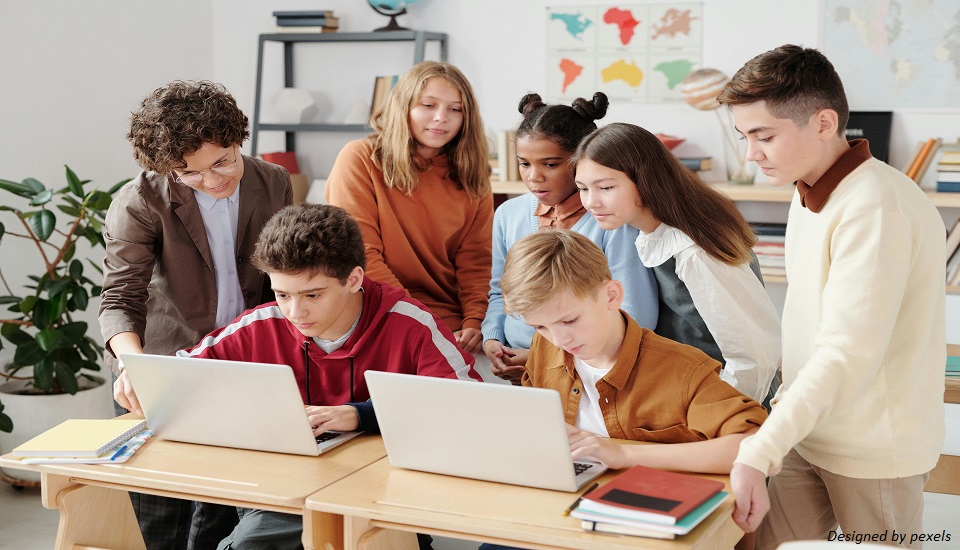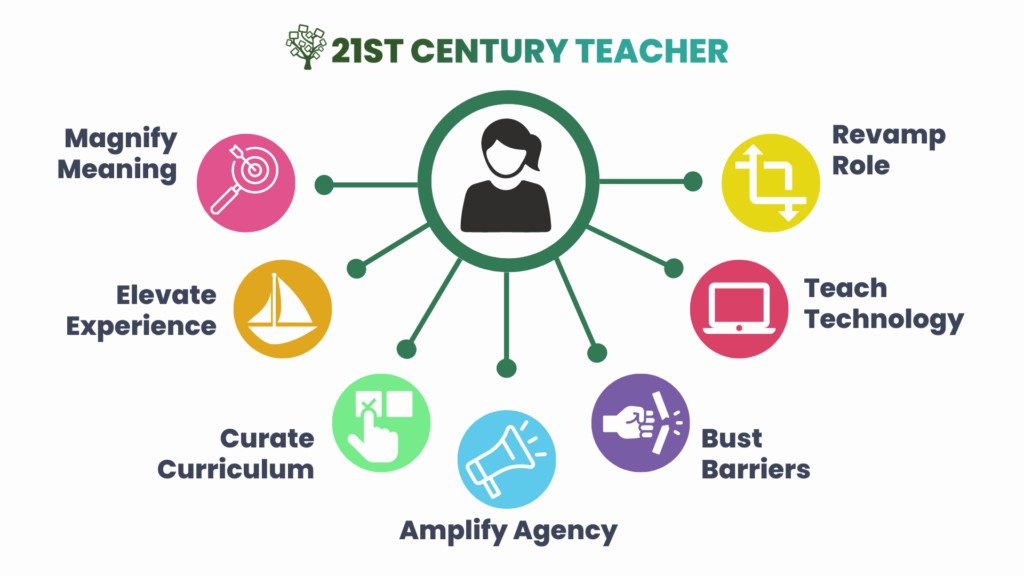
Modern Teaching Practices Of The 21st Century: 9 Essential Methodologies Every Teacher Must Know
Since the world is changing quickly, educators must adopt innovative and creative teaching methods. A modern teaching approach incorporates technology in creative and clever ways. The main goal is to improve student learning. This blog discusses these innovative and popular teaching methodologies and how they help students learn more effectively in the fast-paced world of today.
Must Have 21st Century Skills For Successful Educators

Here are 9 essential core teaching abilities in this blog that all educators must possess to succeed in the classroom of the twenty-first century:
1. Technology Integration
Utilizing digital tools and resources to improve student learning and engagement is known as technology integration in education. It enables educators to design a personalized, interactive learning environment that caters to the interests and requirements of a wide range of students.
Educators may enhance communication, cooperation, and information sharing among students and help them acquire digital literacy, critical thinking, and problem-solving abilities by utilizing technology in the classroom.
Do you follow us on Social Media? If not, then you’re missing out on a lot of informative content. We regularly share upgraded educational content, tips, feedback, and more. Check us out by clicking the profiles here - Facebook / Twitter / LinkedIn / Pinterest / Instagram / YouTube
2. Collaborative Learning
Students are encouraged to engage in the learning process through collaborative learning actively. Students actively participate in conversations and activities rather than passively taking in information, which can result in a greater comprehension of the subject matter.
Collaboration abilities are highly prized in today's workforce. Students who participate in collaborative learning projects can work in groups, communicate well, and solve challenges as a team.
3. Blended Learning
The learning process may be more flexible with blended learning. Students may work quickly and on their schedule by accessing resources and engaging in learning activities online. It makes learning more individualized possible.
Students' knowledge and abilities may be evaluated using online learning technologies, which can also offer personalized feedback and educational resources. Delivering education at a lower cost may be accomplished through blended learning.
4. Flipped Learning
Flipped learning is turning around the conventional teaching methodology, which has students view or read course materials before class and then apply what they have learned through group projects and discussions.
Better learning results result from letting students study at their speed and concentrate on the areas where they require more help.
5. Personalised Learning
Personalized learning is a method that adjusts instruction to meet each student's unique requirements, interests, and skill level. Better learning outcomes are achieved when students concentrate on the areas in which they require more help through personalized learning.
It fosters critical thinking abilities by allowing pupils to investigate ideas in a way that makes sense to them.
6. Project-Based Learning
Through project-based learning, students are forced to apply their critical thinking and problem-solving abilities to tackle real-world issues. They get a deeper comprehension of the material and improve their ability to apply it in novel contexts by doing this.
Moreover, students frequently collaborate in groups to finish projects in a project-based learning environment. This strategy promotes cooperation and teamwork, two qualities that are crucial in today's workforce.
7. Culturally Responsive Learning
The diversity of students' experiences, backgrounds, and cultures is recognized and valued in culturally responsive learning. It establishes a secure, welcoming, and supportive learning atmosphere where all children are treated with respect and feel appreciated.
It acknowledges that cultural experiences and backgrounds can have an impact on pupils' learning. Teachers can improve academic achievements by making the information more relevant and meaningful for students by incorporating their backgrounds and experiences into the learning process.
8. Student-Centered Learning
Students actively participate in their learning when they are in a student-centered learning environment. This encourages interest and involvement, which can improve academic performance.
Students who actively participate in their education acquire transferable critical thinking abilities. Additionally, pupils' tastes and learning methods vary. Through student-centered learning, students may choose the learning methods that best suit their needs.
9. Game-Based Learning
Since games offer instant feedback and are intrinsically motivating, they can boost students' interest in studying and improve their ability to retain material. Students may also hone their critical thinking, problem-solving, and teamwork abilities through game-based learning.
Playing games frequently calls on players to use both creative and strategic thinking, collaborate with others to accomplish a common objective, and make judgments based on their comprehension of the game mechanics. These abilities are necessary to succeed in the workplace of the twenty-first century when creativity, problem-solving, and cooperation are highly prized.
Master The Art Of 21st Century Teaching
To make sure that their pupils are getting the finest education possible, instructors must keep up with the most recent developments in the field of education. To assist them adopt these cutting-edge teaching techniques in their classrooms, instructors can enroll in skill-development courses like Master of Arts in Teaching.
We believe education should be accessible for everyone. That’s why we don’t charge for our blogs. Find the right course that will help you in your career with us, contact us at +66-21055721. You can mail us at act@asiancollegeofteachers.com

